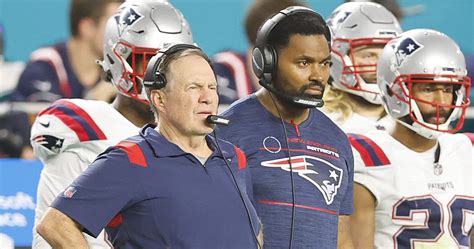
Speculation intensified surrounding a potential trade sending Aaron Rodgers to the Pittsburgh Steelers after comments made by Steelers insider Mark Kaboly raised concerns about the team’s future quarterback situation, hinting at a possible pursuit of a veteran quarterback, potentially the four-time MVP.
The Pittsburgh Steelers’ quarterback situation is once again under scrutiny, fueled by recent remarks suggesting the team might be in the market for a veteran signal-caller, igniting rumors of a possible Aaron Rodgers acquisition. While Kenny Pickett is still viewed as the likely starter, comments from Steelers insider Mark Kaboly have cast doubt on the team’s long-term confidence in Pickett, prompting speculation that a move for a proven quarterback like Rodgers could be on the horizon. This development has stirred considerable debate among Steelers fans and NFL analysts, weighing the pros and cons of trading for an aging superstar versus continuing to develop their young quarterback. The plausibility and potential impact of such a move are now dominating sports discussions.
Kaboly’s analysis pointed to underlying issues that may lead the Steelers to explore alternatives. He suggested that the team’s brass isn’t entirely sold on Pickett as the definitive franchise quarterback, despite the public support he receives. This sentiment stems from inconsistencies in Pickett’s performance and concerns about his development trajectory, especially considering the Steelers’ aspirations to compete for championships. “I would not be stunned if they made a run at a quarterback,” Kaboly stated, adding that the Steelers could consider a “bridge-type guy” if they don’t see significant improvement from Pickett.
The idea of Rodgers joining the Steelers has profound implications. It would instantly elevate Pittsburgh into Super Bowl contention, injecting a level of experience and talent that Pickett, at this stage of his career, cannot provide. Rodgers’ resume speaks for itself: four-time NFL MVP, Super Bowl champion, and a quarterback with unparalleled accuracy and decision-making. His presence would undoubtedly transform the Steelers’ offense and make them a formidable opponent in the AFC.
However, acquiring Rodgers is not without its challenges. He is 40 years old and coming off an Achilles injury that sidelined him for most of the 2023 season. His age and injury history raise questions about his long-term durability and effectiveness. Furthermore, his contract would be a significant financial commitment, potentially limiting the Steelers’ ability to address other needs on the roster. Rodgers is currently under contract with the New York Jets, but given the Jets’ acquisition of Tyrod Taylor, some speculate that the Jets might be willing to move on if the right offer presents itself.
The Steelers also have to consider the impact on Kenny Pickett. Bringing in Rodgers would effectively sideline Pickett, hindering his development and potentially damaging his confidence. Pickett, a first-round pick in 2022, represents a substantial investment for the Steelers, and abandoning him after just two seasons could be viewed as a significant setback for the franchise. Coach Mike Tomlin has consistently expressed his support for Pickett, emphasizing the importance of patience and development. “We remain excited about Kenny and his development,” Tomlin stated recently, but those words might now carry less weight given Kaboly’s insights.
The Steelers’ current quarterback depth chart includes Pickett, veteran backup Mason Rudolph, and seldom-used Dwayne Haskins. Rudolph has experience in the Steelers’ system and has shown flashes of potential, but he is not considered a long-term solution. Haskins has struggled to find his footing in the NFL and is unlikely to challenge for the starting role.
Adding Rodgers would bring a proven winner to Pittsburgh, a stark contrast to the uncertainty surrounding Pickett. The allure of contending for a Super Bowl immediately is tempting, especially for a franchise with a rich history and a passionate fanbase. However, the Steelers must carefully weigh the risks and rewards of such a move, considering the long-term implications for the team’s future.
The potential trade also raises questions about the Steelers’ overall strategy. Are they willing to mortgage their future for a chance to win now, or are they committed to building a sustainable contender through the draft and player development? The answer to this question will ultimately determine whether they pursue Rodgers or stick with Pickett.
For the Steelers, the decision is complex and multi-faceted. It involves evaluating Pickett’s potential, assessing Rodgers’ health and contract situation, and considering the team’s long-term goals. As the offseason progresses, the speculation surrounding Rodgers and the Steelers is likely to intensify, keeping fans and analysts on the edge of their seats. The organization’s willingness to make a bold move will reveal its true intentions.
The situation also impacts the Jets, who traded significant draft capital to acquire Rodgers. After his season-ending injury, they now face the dilemma of how to maximize their return on investment. Trading Rodgers after just one season would be a significant setback, but if they believe he is unlikely to return to his former glory, they may be forced to consider other options. The Jets have publicly stated their commitment to Rodgers, but as with any business decision, they must weigh all factors.
The broader NFL landscape would also be affected by a Rodgers trade. It would create a ripple effect, impacting other teams’ quarterback situations and potentially altering the balance of power in the AFC. A Rodgers-led Steelers team would immediately become a Super Bowl favorite, while the Jets would be forced to reassess their strategy and potentially look for another quarterback solution.
Ultimately, the decision rests with the Steelers’ ownership and coaching staff. They must carefully analyze all the available information and make a choice that they believe is in the best long-term interest of the franchise. The coming weeks and months will be crucial in determining the Steelers’ quarterback situation and their direction for the future. The NFL world watches with bated breath, eager to see how this drama unfolds.
The noise surrounding the Rodgers trade possibility also comes at a time when the Steelers organization is facing scrutiny from other directions. The team’s offensive struggles over the past few seasons have been well-documented, and the pressure is mounting on Coach Tomlin to turn things around. A change at quarterback could be seen as a way to inject new life into the offense and appease frustrated fans.
Furthermore, the Steelers have a history of being a conservative organization, preferring to build through the draft and avoid splashy free-agent signings. Trading for Rodgers would be a departure from this philosophy, signaling a willingness to take more risks in pursuit of a championship.
The question remains: are the Steelers truly considering Aaron Rodgers, or is this just offseason speculation fueled by Kaboly’s comments? Only time will tell, but the rumors have undoubtedly added another layer of intrigue to the Steelers’ offseason.
Frequently Asked Questions (FAQ)
1. Is there a realistic chance Aaron Rodgers could be traded to the Steelers?
While nothing is confirmed, the possibility is being discussed due to comments from Steelers insider Mark Kaboly, who suggested the Steelers might pursue a veteran quarterback if Kenny Pickett doesn’t show significant improvement. The likelihood depends on the Steelers’ evaluation of Pickett, Rodgers’ health and availability, and the Jets’ willingness to trade him. Kaboly stated, “I would not be stunned if they made a run at a quarterback,” indicating that the Steelers are at least considering the possibility.
2. What are the potential benefits of the Steelers acquiring Aaron Rodgers?
Rodgers is a four-time NFL MVP and Super Bowl champion, bringing unparalleled experience and talent to the Steelers’ quarterback position. He would immediately elevate the team into Super Bowl contention and transform their offense. His accuracy and decision-making would provide a significant upgrade over the current options. The Steelers have a talented roster, and adding a quarterback of Rodgers’ caliber could be the missing piece they need to win a championship.
3. What are the potential drawbacks of the Steelers trading for Aaron Rodgers?
Rodgers is 40 years old and coming off a serious Achilles injury, raising concerns about his long-term durability and effectiveness. His contract would be a significant financial commitment, potentially limiting the Steelers’ ability to address other needs on the roster. Acquiring Rodgers would also effectively sideline Kenny Pickett, hindering his development and potentially damaging his confidence. The Steelers would have to give up significant draft capital to acquire Rodgers, which would weaken their ability to build through the draft.
4. What is Kenny Pickett’s current status with the Steelers?
Kenny Pickett is currently the starting quarterback for the Steelers, but his long-term future with the team is uncertain. While Coach Tomlin has expressed support for Pickett, comments from Mark Kaboly suggest that the team may not be entirely sold on him as the definitive franchise quarterback. Pickett’s performance in his first two seasons has been inconsistent, and the Steelers may be looking for a more proven option. “We remain excited about Kenny and his development,” Tomlin stated, but the team’s actions will speak louder than words.
5. What impact would a Rodgers trade have on the New York Jets?
Trading Rodgers after just one season would be a significant setback for the Jets, who traded significant draft capital to acquire him. It would force them to reassess their strategy and potentially look for another quarterback solution. The Jets have publicly stated their commitment to Rodgers, but they must also consider his health and availability moving forward. The Jets’ recent acquisition of Tyrod Taylor has fueled speculation that they might be open to trading Rodgers if the right offer presents itself.
Expanded Analysis and Context:
The Steelers’ potential pursuit of Aaron Rodgers represents a critical juncture for the franchise. It’s a decision that could drastically alter their trajectory for the next several years, and it’s one that must be approached with careful consideration and a clear understanding of the risks and rewards involved.
Evaluating Kenny Pickett:
The crux of the Steelers’ dilemma lies in their evaluation of Kenny Pickett. The team invested a first-round pick in Pickett in 2022, believing he could be their franchise quarterback for years to come. However, his performance through his first two seasons has been inconsistent. While he has shown flashes of potential, he has also struggled with accuracy, decision-making, and overall consistency.
Pickett’s supporters point to his leadership qualities, his ability to make clutch throws, and his improvement over the course of his rookie season. They argue that he needs more time to develop and that the Steelers should be patient with him. They also note that he has been playing behind a subpar offensive line and with a revolving door of wide receivers, making it difficult for him to thrive.
However, critics point to Pickett’s low touchdown-to-interception ratio, his tendency to hold onto the ball too long, and his lack of explosive plays. They argue that he doesn’t have the arm strength or athleticism to be a top-tier quarterback and that the Steelers should move on before investing too much more in him.
Ultimately, the Steelers must make a judgment call on whether Pickett has the potential to be a franchise quarterback. If they believe he does, they should stick with him and continue to develop him. But if they have doubts, they should explore other options, including trading for a veteran like Rodgers.
Assessing Aaron Rodgers:
Aaron Rodgers is one of the most talented quarterbacks in NFL history. He has won four MVP awards, a Super Bowl, and is known for his incredible arm strength, accuracy, and decision-making. However, he is also 40 years old and coming off a serious Achilles injury.
Rodgers’ age and injury history are major concerns. Achilles injuries are notoriously difficult to recover from, and there is no guarantee that he will be able to return to his former level of play. Even if he does recover fully, his age will likely limit his mobility and his ability to extend plays.
Furthermore, Rodgers is known for being a demanding player and can be difficult to work with at times. He has clashed with coaches and front office personnel in the past, and his personality could be a challenge for the Steelers’ coaching staff.
However, the potential rewards of acquiring Rodgers are undeniable. He would instantly transform the Steelers’ offense and make them a Super Bowl contender. His experience and leadership would be invaluable to the team, and his presence would inspire confidence in his teammates.
The Financial Implications:
Trading for Rodgers would have significant financial implications for the Steelers. He is currently under contract with the Jets, and his contract is one of the largest in the NFL. The Steelers would have to take on a significant portion of his salary, which would limit their ability to address other needs on the roster.
Furthermore, the Steelers would likely have to give up valuable draft picks in order to acquire Rodgers. This would weaken their ability to build through the draft and could hurt their long-term prospects.
The Steelers would have to carefully weigh the financial costs of acquiring Rodgers against the potential benefits. They would have to determine whether they are willing to sacrifice their long-term financial flexibility for a chance to win now.
The Impact on the Locker Room:
Bringing in Rodgers would also have a significant impact on the Steelers’ locker room. It would effectively sideline Kenny Pickett, which could create tension and resentment within the team.
Pickett is a popular player in the locker room, and his teammates have rallied around him. Bringing in a veteran quarterback like Rodgers could undermine his authority and create a divide within the team.
The Steelers would have to carefully manage the locker room dynamics if they were to acquire Rodgers. They would have to ensure that Pickett is treated with respect and that the team remains unified.
Alternative Options:
Before making a decision on Rodgers, the Steelers should explore other options. They could consider signing a free agent quarterback, such as Ryan Tannehill or Gardner Minshew. They could also explore trading for another veteran quarterback, such as Kirk Cousins or Matt Ryan.
The Steelers should also consider sticking with Pickett and giving him another year to develop. He has shown flashes of potential, and he could improve significantly with more experience.
Ultimately, the Steelers must make a decision that they believe is in the best long-term interest of the franchise. They should carefully weigh all the available information and consider all the potential risks and rewards.
The Jets’ Perspective:
The New York Jets also have a crucial role in this potential scenario. After investing heavily in acquiring Rodgers, his season-ending injury was a devastating blow. The Jets now find themselves at a crossroads. Do they remain committed to Rodgers and hope he can return to form? Or do they explore the possibility of trading him and recouping some of their investment?
The Jets’ decision will likely depend on Rodgers’ health and their assessment of his long-term potential. If they believe he is unlikely to return to his former glory, they may be forced to consider trading him. The acquisition of Tyrod Taylor suggests they are at least considering contingency plans.
Trading Rodgers would be a difficult decision for the Jets, but it could be the best move for the franchise in the long run. It would allow them to acquire valuable draft picks and potentially find a new franchise quarterback.
The Broader NFL Landscape:
A Rodgers trade would have a ripple effect throughout the NFL. It would create a new Super Bowl contender in the AFC and potentially alter the balance of power in the conference.
It would also impact other teams’ quarterback situations. Teams that are looking for a quarterback could become more aggressive in the free agent market or in the draft.
The NFL world will be watching closely to see how this situation unfolds. It is one of the most intriguing storylines of the offseason, and it could have a major impact on the future of the league.
Conclusion:
The possibility of Aaron Rodgers being traded to the Pittsburgh Steelers is a complex and multi-faceted issue. It involves evaluating Kenny Pickett’s potential, assessing Rodgers’ health and contract situation, considering the team’s long-term goals, and managing the locker room dynamics.
The Steelers must carefully weigh all the available information and make a choice that they believe is in the best long-term interest of the franchise. The coming weeks and months will be crucial in determining the Steelers’ quarterback situation and their direction for the future. The NFL world watches with bated breath, eager to see how this drama unfolds. The decision they make will not only define their immediate competitiveness but also shape the Steelers’ identity and future prospects for years to come. Whether they embrace the allure of a seasoned superstar or commit to nurturing their young talent, the Steelers are on the cusp of a defining moment.









